For more than a thousand years, far-flung indigenous villages in the Himalayan ranges have depended on their Amchi practitioners for healing and health prescriptions for their ailments, not only in body, but also for mental wellbeing. These Buddhist practitioners use an ancient herbal medical regimen that combines physical and spiritual skills with arduous travel on long and remote roads and trails to attend to the ailing in their homes. Amchis learn and apply Sowa Rigpa, the art and science of healing that incorporates a mixture of traditional Chinese medicine and Ayurveda. They devote time to the study, collection, and processing of medicinal herbs and plants, minerals, and other natural products into medicines for curative treatments. Unlike modern medical training, the Amchi system is hereditary, and knowledge is passed down from one generation to another.
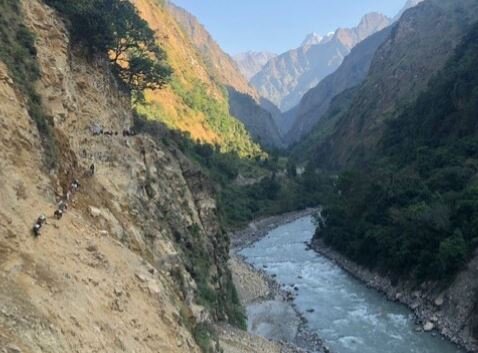
The persistent relevance and importance of these traditional healers is not lost on the Center for Indigenous Peoples’ Research and Development (CIPRED), which initiated a project to ensure the continuity of these practices in the face of increasing challenges in transmitting healing wisdom to the young generation. Western medicine, lack of government recognition, inadequate donations to practitioners, and the onslaught of modern lifestyle and values are some of the reasons why the significance of the Amchi as community indigenous healers is threatened.
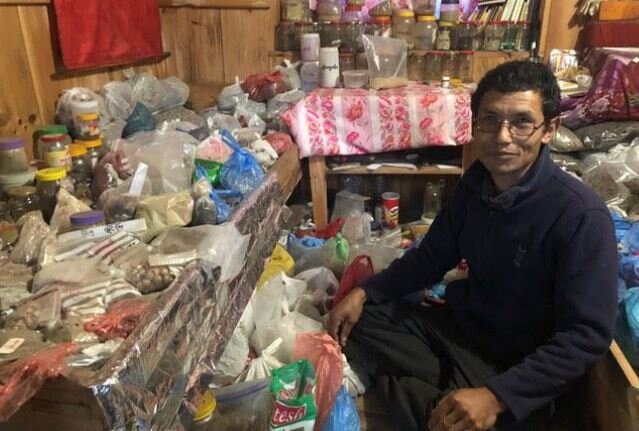
The project began with an extensive review of available literature on traditional healing practices and existing national legal provisions to better understand Amchis and Sowa Rigpa practices in Nepal. This was followed by field visits to the Nubri and Kutang valleys in Gorkha for primary data collection. There, interviews were conducted to assess the importance of the Amchi system in communities, types of medicine for different treatments, and the realities and challenges faced by traditional healing practitioners.
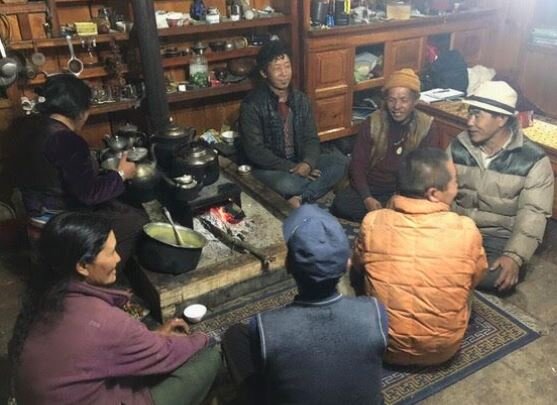
Having documented various experiences and views, CIPRED brought indigenous community leaders, government agencies, and other stakeholders together with Amchis and Sowa Rigpa practitioners to launch workshops in Kathmandu to validate feedback and proposals. Invited leaders and Amchis discussed the status of traditional healing practices in Nepal, along with the challenges they encounter and their recommendations. Workshop reports were collectively discussed and distributed among participants. The events raised awareness of the importance of traditional medicine, a familiar, available, accessible, affordable, culturally acceptable practice without side effects, and an effective treatment for particular disorders. It is based on a rich diversity of medicinal and aromatic plants.
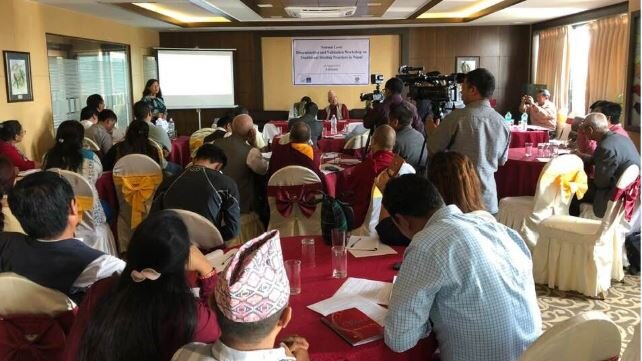
The compiled reports are slated for publication to achieve a much broader reach. Already, workshops findings have been forwarded to relevant government organizations, and among those, advocacy and lobbying are ongoing regarding the importance of traditional healing practices. Likewise, in communities, school teachers and local leaders are encouraged to understand, appreciate, and recognize the benefits of indigenous knowledge and traditional healing practices. This endeavor is being replicated on national and global platforms during side events at UNFCCC, UNPFII, and UNESCO World Heritage meetings and in similar venues.
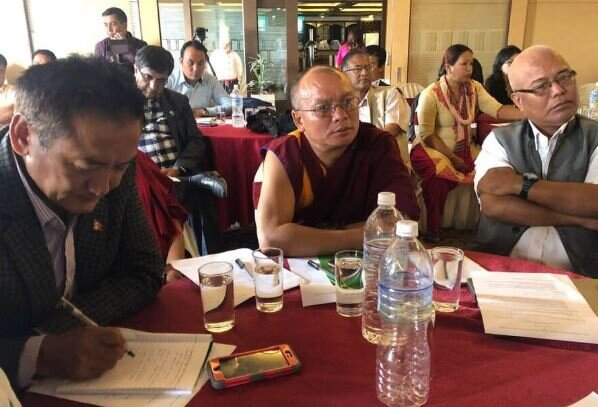
Documentation of traditional healing practices and their subsequent dissemination aim to sensitize wider society about the importance of Amchi healers. A broader perspective is needed to protect, promote, and recognize traditional Amchi healing practices, treatments that not only contribute to patient’s wellbeing, but also protect biodiversity, natural resources, and the environment in highland indigenous communities.
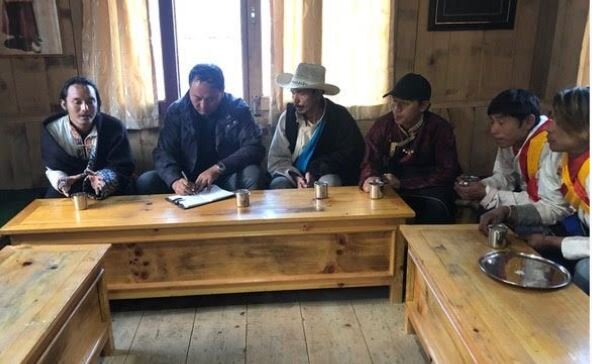
There are still difficulties and obstacles to overcome, particularly as Amchis are not accorded the recognition that other health professionals enjoy, despite their actual work and free service in villages. The Nepalese government’s reluctance to legally recognize this Tibetan medical system marginalizes Amchis socially and economically. This reluctance also reflects the state’s health policy which is heavily influenced by Western medicine and underutilizes the raw materials used in Amchi medicine. Government is urged to gear up its support for the local manufacturing of Amchi medicine and promote these practices through education and information dissemination.
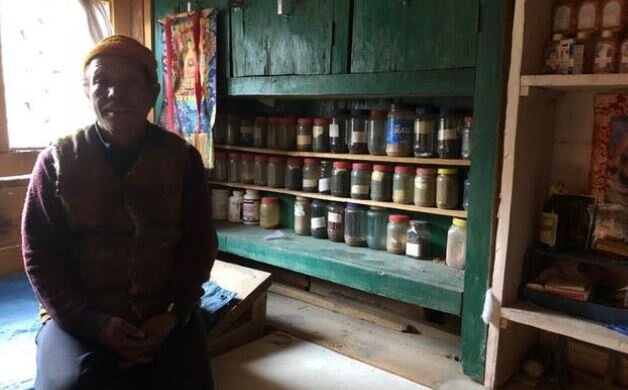
Amchi practitioners resolved to take effective and timely steps to revitalize their unique traditional medical system to help safeguard the health, wellbeing, and cultural traditions of remote mountain communities. This ancient practice must be protected, supported, and practiced lest it be rendered obsolete. Practitioners strive continuously for the institutionalization of Amchi education as well as seeking legal recognition and incorporation into the national policy. Potential sites for herbal farming have been identified, and a policy on sustainable harvesting of Non-Timber Forest Products (NTFP) is being promoted.
It will be a great day when Amchis can also benefit from basic infrastructure, such as clinics and medical tools, as well as receive regular remuneration from the Nepalese government. For now, there is much to appreciate with the rich research and documentation achieved during the project period. Where before studies and documentation were few and far between, today, in-depth studies on the healing wisdom of the Amchis can ensure the preservation and promotion of this ancient tradition far beyond remote mountain communities in Nepal.
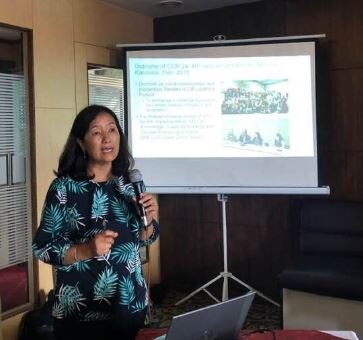
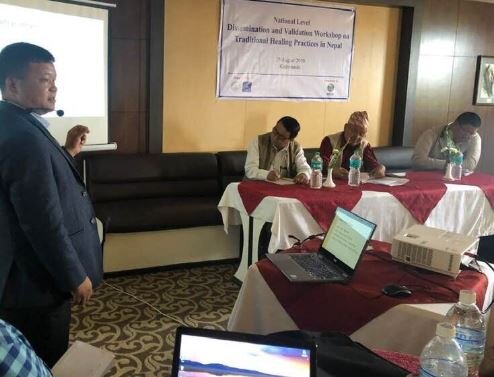
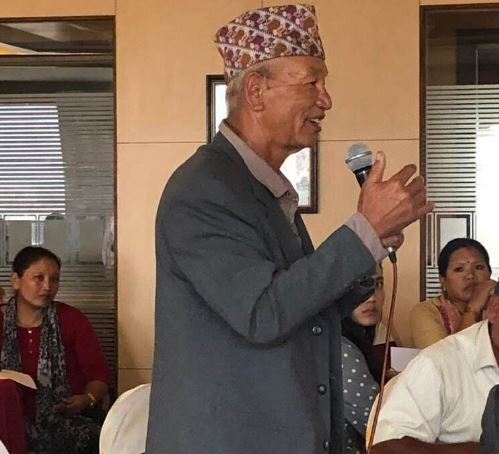
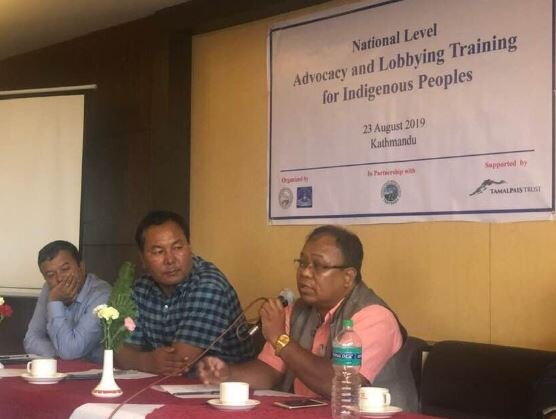
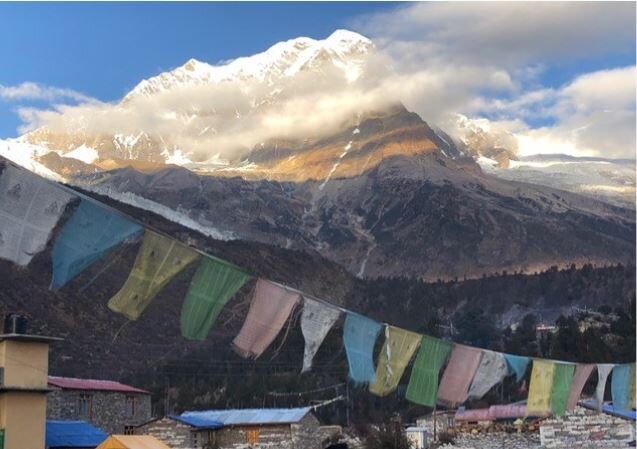
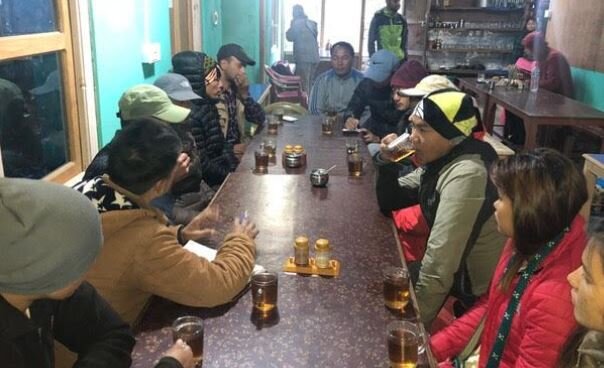
(The “Promotion and Transformation of Traditional Healing Practices of Indigenous Peoples for Good Health and Wellbeing in Nepal” project was implemented in Kathmandu, Nepal by the Center for Indigenous Peoples’ Research and Development (CIPRED) in 2019 with support from PAWANKA Fund)
